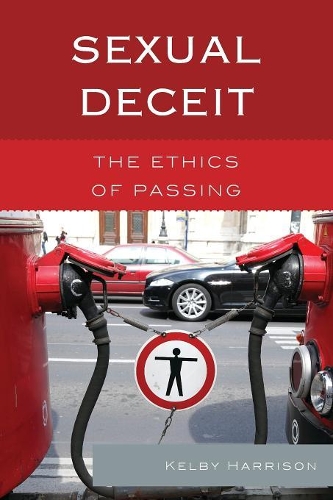
Sexual Deceit: The Ethics of Passing
(Paperback)
Publishing Details
Sexual Deceit: The Ethics of Passing
By (Author) Kelby Harrison
Bloomsbury Publishing PLC
Lexington Books
26th February 2015
United States
Classifications
Professional and Scholarly
Non Fiction
Ethics and moral philosophy
Gender studies, gender groups
Law and society, gender issues
158.1
Physical Properties
Paperback
230
Width 154mm, Height 226mm, Spine 17mm
345g
Description
Sexual Deceit is an extended ethical analysis of the phenomenon of sexual identity passing i.e. socially presenting as X, when one understands oneself as Y, where the variables represent any contemporary sexual identity alongside identity passing in the contexts of race, gender, and briefly, religion and class. The analysis of passing utilizes and challenges traditional moral understandings of identity falsification, complicating our understandings of moral obligations under systemic oppression. Tracing the intervention of social construction theory on contemporary political understandings of LGBT communities and activism, Sexual Deceit argues against social construction models of identity notably performativity, promulgated by the work of Judith Butler and consumed and repeated by many scholars and theory educated queer people. A new model of identity is constructed, based on a phenomenological concept of style that provides for a socially adjustable yet rooted notion of sexual identity. The ethical implications of sexual identity passing are considered in the context of eschatological images of social justice and within practical matters such as military service, leadership, and sexual harassment law.
Reviews
A useful study of the ever more complicated matters of passing, closeting, outing, and the like. As sex/gender issues evolve, these questions and the importance of how to approach them justly only increase. Specialized work that will evoke necessary discussion. * Water Women's Alliance *
Sexual Deceit: The Ethics of Passing shows an excellent understanding and command of the scholarship on the issues. This is particularly notable because the approaches of what I will call traditional philosophy and of queer theory are very different, and it can seem to readers as if they are speaking different languages. The author not only handles the different approaches/traditions well, but also combines their insights, key concepts, and important arguments in developing an ethical theory the author calls Gayness as Practical Identity, or just Gayness. And this serves as an ethical theory that can be applied to many issues in addition to passing. I think that this theory, which I will call a theory of gay ethics is an important contribution to ethics and LGBT studies. -- Mark Chekola, Minnesota State University Moorhead
Author Bio
Kelby Harrison has a Ph.D. in philosophical ethics, gender and sexuality from Northwestern University. From 2010 to 2012 she was the social ethics post-doctoral fellow at Union Theological Seminary. She is the co-editor of Passing/Out: Sexual Identity Veiled and Revealed, an intergenerational, interdisciplinary, and intersubjective anthology on issues of sexual identity closeting and revelation.
